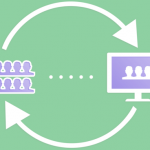Chill With The Adderall: Four Non-Chemical Brain Hacks To Help You Focus
Did you click on this article just now to take a break from your work? Having trouble focusing today? Don’t blame yourself. Blame the modern office, which in many cases makes us all feel like we’re suffering from some kind of attention-deficit disorder.
Most of us aren’t, though. Instead, the things that distract us the most aren’t biochemical or psychological–they’re environmental. And that means many (if not all) of us can change them ourselves, without the help of a pill. Here’s how.
Blame Your Office First
Between push notifications, Slack alerts, calendar invites, and never-ending email threads, the digital environment is ceaselessly begging for more of our time.
The analog one isn’t much better. Many people also work in crowded offices and cubicle farms, punctuated by the sounds of neighboring phone calls, prairie-dogging colleagues, and brief yet disruptive side-chats.
It doesn’t help things that by now a generation of college students has entered the workforce having churned out term papers and crammed for exams with the aid of medications they didn’t technically need. Trying to kick a reliance on prescription stimulants–especially in a work environment like this–sounds pretty hopeless (which for many, it sadly is).
For most people, though, Adderall and its cousins–all variants of amphetamine–generally aren’t great solutions to the challenges of focusing in the modern workplace. For one thing, these chemicals’ very long-term impacts still aren’t well understood. For another, while stimulants can improve your focus, they also increase your tendency to lock into particular solutions to problems. Many jobs call for creative problem-solving, where you need to consider a range of options, and this type of medication may actually get in your way if you don’t have ADD or ADHD.
And most people, after all, don’t. Instead, they’ll respond just fine to non-chemical methods to improve their focus. Here are a few tweaks to make to your work environment before calling up your doctor and asking for a new prescription.
1. Treat Your Brain Like Part Of Your Body
First, remember that the primary function of the brain is to control the body. Your brain is not a computer inside a robot designed to serve it. Brains evolved to help bodies navigate the world successfully. If you spend the day sitting down, it’s eventually going to be hard to stay focused on the task at hand.
So use your body more during the workday. Get a standing desk if you can, or find somewhere you can pace back and forth while you’re thinking or talking on the phone.
Take walks during the day or consider a lunchtime workout. Basically, just add more exercise and movement into your day in general. And consider taking up a hobby like painting or playing an instrument rather than sitting in front of the TV or fiddling on your laptop in the evening. All of this keeps that connection between brain and body functioning effectively.
Related: How And When To Exercise To Boost Your Productivity
2. Cut Yourself Off
If you’re a slave to your smartphone and check it several times an hour, shut it off or move it out of easy reach when you’re trying to accomplish something significant. I know, easier said than done. But because of that aforementioned brain-body connection, people are extremely sensitive to the objects in their immediate environments. Changing the environment changes what your brain believes is possible. Remove the biggest sources of distraction, and you’ll find it easier to pay attention to the work that needs to get done.
3. Make Work More Social
Socializing may not sound like a great strategy for focusing on something that demands your unbroken attention–usually that means doing the reverse, and shutting people out. But the human brain is optimized to cooperate with other people (even if your current mood isn’t). People still tend to get deeply engaged in conversations even when they’re having trouble fixating on their computer screens for long stretches.
So if you find your attention drifting when you’re working on a big project, don’t just try to bite the bullet and isolate yourself even further. See if there are ways to get some other people involved, even if that just means seeking some quick feedback.
4. Turn Focusing Into A Team Effort
Finally, if your work environment is hectic, coordinate with your colleagues and manager to tame the worst of it–and again, try to involve others in the solution. Create a few signals that let your colleagues know when you’re available to chat and when you need to be left alone. See if you can set aside some space in the office where individuals and small groups can gather when they need to get away from the hubbub.
Ultimately, staying focused is usually a combination of biology, environment, and habit. There isn’t much you can do to change the way your brain is structured, but you can manage your behaviors and the circumstances in which you perform them. We simply aren’t built to sit still and sustain our attention for long periods of time. So even if you’re pretty good at that, get up and move around now and then. Your brain will thank you.
Fast Company , Read Full Story
(63)














